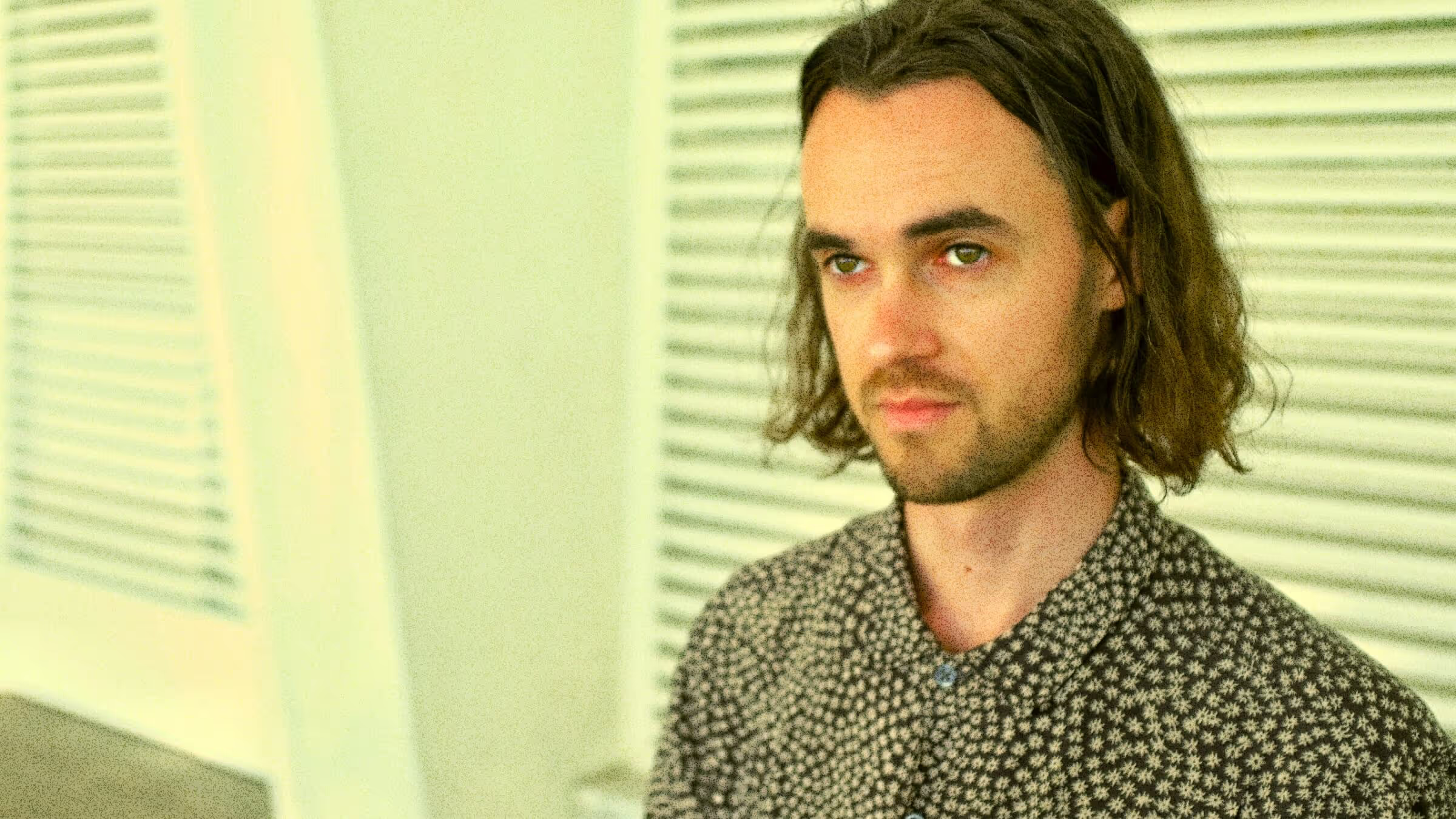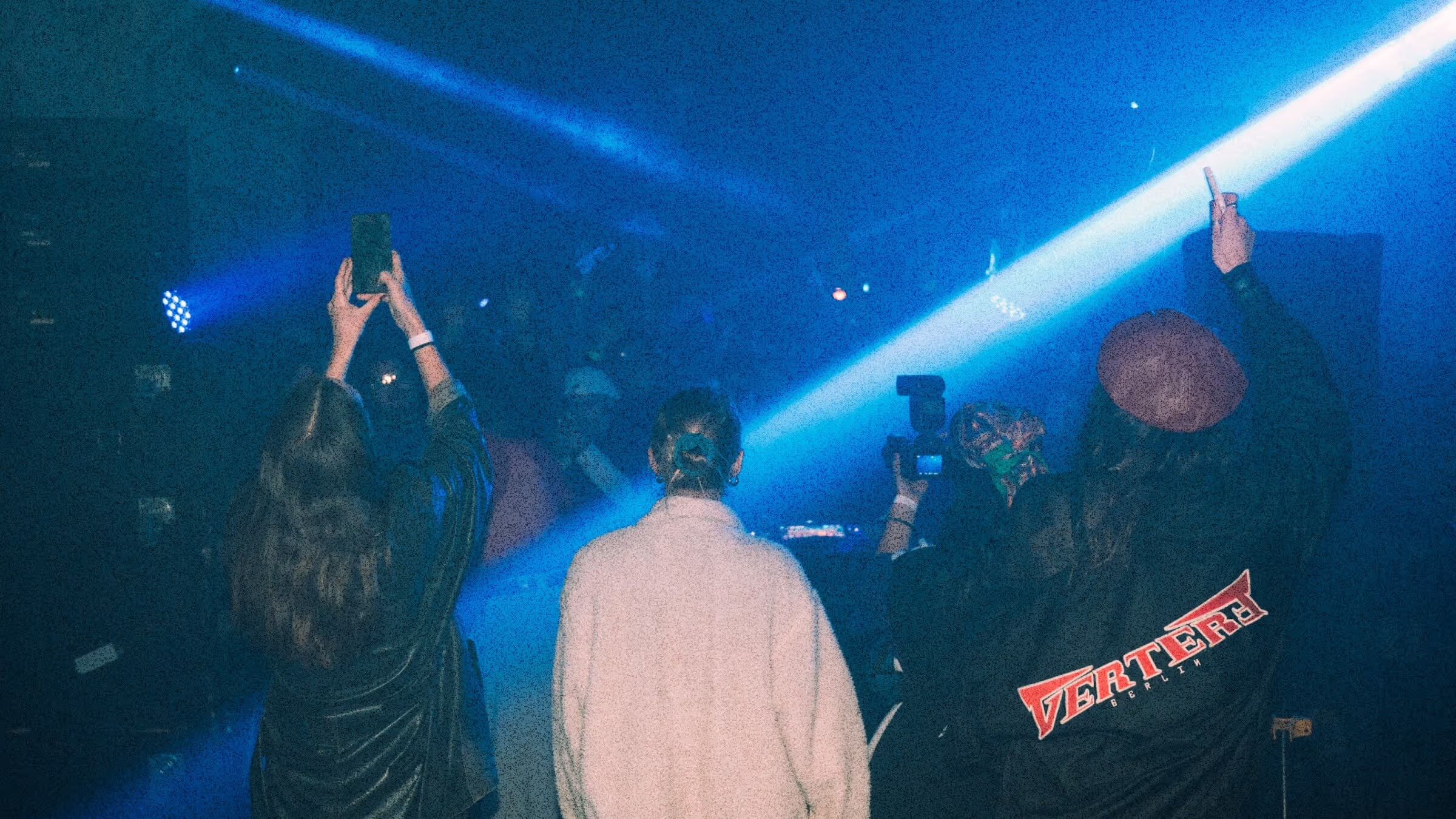In the penultimate installment of our Interview series, we welcome Kampala-based producer and electronic music pioneer Brian Bamanya (Afrorack). Bamanya is a resident at the NyegeNyege label and is recognized for having created the first African synthesizer, hence the name “Afrorack”—a nod to the European variant “Eurorack.” He named his first album after his invention, which was met with positive acclaim as he showcases his talents with a dedicated DIY approach. Dive in below as we explore his motivations, story, reflections on Kampala's electronic music scene, and his view on Africa’s cultural future.
It’s Halloween.
I’m strolling through Neukölln unassumingly, my bag packed with camera lenses and dinner ingredients digging into my shoulders. The cold white light of the streets reminds me of a late-night market closer to the equator; however, the persistent piercing of the raindrops, guided by the winter breeze, reminds me I’m actually creeping into winter, further north of the equator… in Berlin. A few minutes late to our agreed time, I ring the bell. As I await the hinges of the door to crackle with an alarm-like buzz, I hear a call down the street. A stranger seemed to have been speaking through me—not to me; his interest fades as he walks on, a pleasant reminder I’m in Berlin. Brian arrives a second later, coming from the courtyard, unassumingly dressed in a red cap and a puffer jacket, apparently not loving the weather either. As we make our way up the charming staircase of the apartment building, exchanging niceties, we sink into a leather couch hugged by vinyl records.
Rahim: What is your identity? Ugandan? A citizen of the world? An African? (laughter from both)... Pan-African?
Brian Bamanya (Afrorack): You are going with those questions... (charming sigh). I am Ugandan, first of all, then African, and then everything comes after that. Over the last few years, I have traveled a lot and seen many great cities, such as Berlin. Everyone asks why I don't move here... I guess I'm very true to Uganda.
Rahim: Mainly Kampala?
Afrorack: Yes, it is where I went to school and where I grew up. It's the only big city we have, I guess (preceded by laughter). Unless... we want to stay with the grandparents...
Rahim: Describe the city. What is the state? Is there an optimistic energy present, and how do the young people feel?
Afrorack: I am not sure about that; a lot of people are frustrated. But at the same time, it is a happy place. Everyone says they are struggling, but the bars are full. People say "life is hard, there is no money," but then you go to the bars and concerts, which are all sold out. Maybe there is money to party...
However, it seems evident that many are leaving. Every time I go to the airport, there seems to be more traffic going out than in. I sometimes joke that one day we will run out of people.
Rahim: It's a shame, and it's present in many African countries... Do you see this changing?
Afrorack: Yeah... Kampala is smaller than Nairobi but has a massive cultural impact. There are many inspiring things going on here. In fact, although Nairobi is larger, several Kenyans come to Kampala for cultural events and collaboration.
Rahim: I see that especially with the NyegeNyege team making it a collaborative hub over the past decade.
Afrorack: Of course, the guys at NyegeNyege and the label started as a Ugandan initiative. Then it grew into something more regional, involving Nigerians, Cameroonians, Senegalese, and South Africans, even merging with artists from Japan and Brazil.
Rahim: It's beautiful to see it become so culturally relevant and global, starting from Uganda and Africa... a change of tides. For example, the latest release by Aunty Rayzor fits the genre-pushing tact of the label...
Afrorack: Yes, we're both on the same label, and I did not know about her initially until I played alongside her on stage. She is an amazing talent, and it is beautiful to see what the label is doing to push obscure artists into the world.
Rahim: What is your opinion on local artists being underappreciated but then gaining international popularity?
Afrorack: Perhaps it is a thing of familiarity. You are more appreciated in your home country after gaining recognition elsewhere.

Rahim: How has African culture influenced music for you?
Afrorack: Music is everywhere here in Africa... But we grew up with it differently. In western culture, it is more present in the recording medium, while in Africa, traditional and live music is present at weddings, funerals, dinners, and birthday parties. Every region, township, and tribe has its own music. It has always been there; it's a way of life.
I grew up as the last of five; the culture did not influence me differently than my siblings. The African influence came later when I found my voice in electronic music and started introducing tribal and cultural elements into my career.
Rahim: What would you define as electronic music, and do you see potential for its growth on the African continent, especially as the Amapiano/Afro House genres gain popularity?
Afrorack: Any music that is produced deliberately with electronic elements is, in my view, electronic music. Electronic music was originally a construct of the West or America, as seen with drum machines and 808s.
It’s interesting and beautiful; you give the same technology to people in different continents, and with the same tools, you will get completely different sounds. A Berlin producer and an Ethiopian producer will create vastly different sounds—not due to differences in talent but because of background and influence.
Electronic instruments have made music production more affordable, leading to a rise in "bedroom producers" using software like Fruity Loops. In previous generations, music production in Africa was expensive, limiting access to the craft. This has led to the emergence of genres like Gqom, Amapiano, and Afrohouse.
Rahim: I had a conversation with Brian from AwesomeTapesFromAfrica, where we discussed the rediscovery of African music, noting that many records were lost because releasing them was too expensive back then.
Afrorack: Yes, I know Brian, and we’ve touched on that. A good example is William Onyeabor from the 70s. He was an incredible Nigerian musician who seamlessly transitioned from jazz to funk, even incorporating what we now know as the modern synthesizer. The talent in Africa has always existed; it’s about access, and now technology has made it available to more people.
Rahim: What moment led you to create your version of the synthesizer, now dubbed "Afrorack"?
Afrorack: (laughter) You shouldn't have missed your train yesterday. I explained this story already.
I have always been a tinkerer; I would play with radios and electronics at home, taking them apart and putting them back together. As I grew up, my interest did not fade. While others moved on to football or other things, I remained obsessed with electronics and physics—I excelled in physics but struggled with math (laughs).
This hobby kept growing; I dove into books and watched videos on how to create instruments with scrap materials. Each time I succeeded, I got excited and shared the videos.
The turning point came when a videographer friend reached out, asking what I was up to. I invited him over, and we created a video together. We were not serious; we didn't expect anyone to watch it. We even used wireless mics that ran out of battery, resulting in poor sound quality.
After some time, I received random requests on Facebook; people commented on the video, and I was surprised—people were actually watching it.
It makes sense, as the electronic music community is small, and news circulates quickly. Then, Altium reached out to make a video, and it became one of their most popular releases.
That was the turning point... then Alan from NyegeNyege called me, surprised that I had been in Kampala this whole time without them knowing.
It’s funny because I had attended their events, and they didn’t know me. They would say, "Hey! We are having this party at this club... please come and play," and I would respond, "Hey, play what?"
At that time, I was unsure what my music would be in a performance context. I performed, and it wasn't good—but I improved over time and found my sound.









